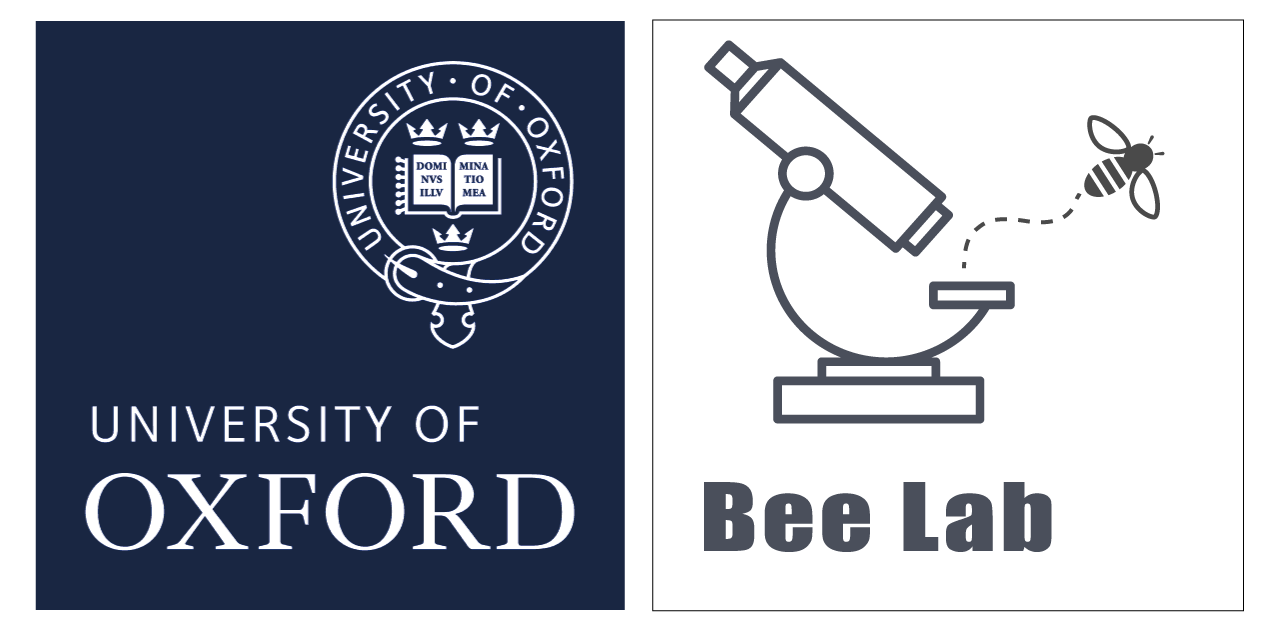Dr. Daniel Stabler
I am interested in nutrition and in particular, the nutrients that plants provide their pollinators. In the Wright lab, I use bees to study how animals optimise their dietary intake when they are faced with nutrient challenges. The main focus of my research is to study macronutrient regulation including protein/amino acids and lipids. Amino acids are diverse and universal, and some are essential for health and must be consumed in diet. I am specifically interested in the way in which plants provision their nectar and pollen with amino acids and in turn how animals perceive and regulate their consumption.
After completing my PhD in the Environmental and Molecular Plant Physiology group at Newcastle University I was awarded a BBSRC/Royal Society of Edinburgh Enterprise Fellowship to explore the commercialisation of a pollen substitute that was developed during the BBSRC-funded Insect Pollinators Initiative project. Following that, I continued as a BBSRC Follow-on Fund Innovation Fellow at Oxford University. I am now studying the fate of dietary lipid and the way in which bees modify their feeding behaviour in order to meet their lipid requirements.
Contact details: daniel.stabler@zoo.ox.ac.uk
Publications:
Nicholls, E., Krishna, S., Wright, O., Stabler, D., Krefft, A., Somanathan, H. and Hempel de Ibarra, N. (2019). A matter of taste: the adverse effect of pollen compounds on the pre-ingestive gustatory experience of sugar solutions for honeybees. J. Comp. Physiol. A Neuroethol. Sensory, Neural, Behav. Physiol. 205, 333–346.
Power, E. F., Stabler, D., Borland, A. M., Barnes, J. and Wright, G. A. (2018). Analysis of nectar from low-volume flowers: A comparison of collection methods for free amino acids. Methods Ecol. Evol. 9, 734–743.
Stabler, D., Power, E. F., Borland, A. M., Barnes, J. D. and Wright, G. A. (2018). A method for analysing small samples of floral pollen for free and protein-bound amino acids. Methods Ecol. Evol. 9, 430–438.
Vaudo, A. D., Stabler, D., Patch, H. M., Tooker, J. F., Grozinger, C. M. and Wright, G. A. (2016). Bumble bees regulate their intake of essential protein and lipid pollen macronutrients. J. Exp. Biol. 219, 3962–3970.
Gillespie, C., Stabler, D., Tallentire, E., Goumenaki, E. and Barnes, J. (2015). Exposure to environmentally-relevant levels of ozone negatively influence pollen and fruit development. Environ. Pollut. 206, 494–501.
Stabler, D., Paoli, P. P., Nicolson, S. W. and Wright, G. A. (2015). Nutrient balancing of the adult worker bumblebee (Bombus terrestris) depends on the dietary source of essential amino acids. J. Exp. Biol. 218, 793–802.
Paoli, P. P., Donley, D., Stabler, D., Saseendranath, A., Nicolson, S. W., Simpson, S. J. and Wright, G. A. (2014). Nutritional balance of essential amino acids and carbohydrates of the adult worker honeybee depends on age. Amino Acids 46, 1449–1458.
Wright, G. A., Baker, D. D., Palmer, M. J., Stabler, D., Mustard, J. A., Power, E. F., Borland, A. M. and Stevenson, P. C. (2013). Caffeine in floral nectar enhances a pollinator’s memory of reward. Science. 339, 1202–1204.










